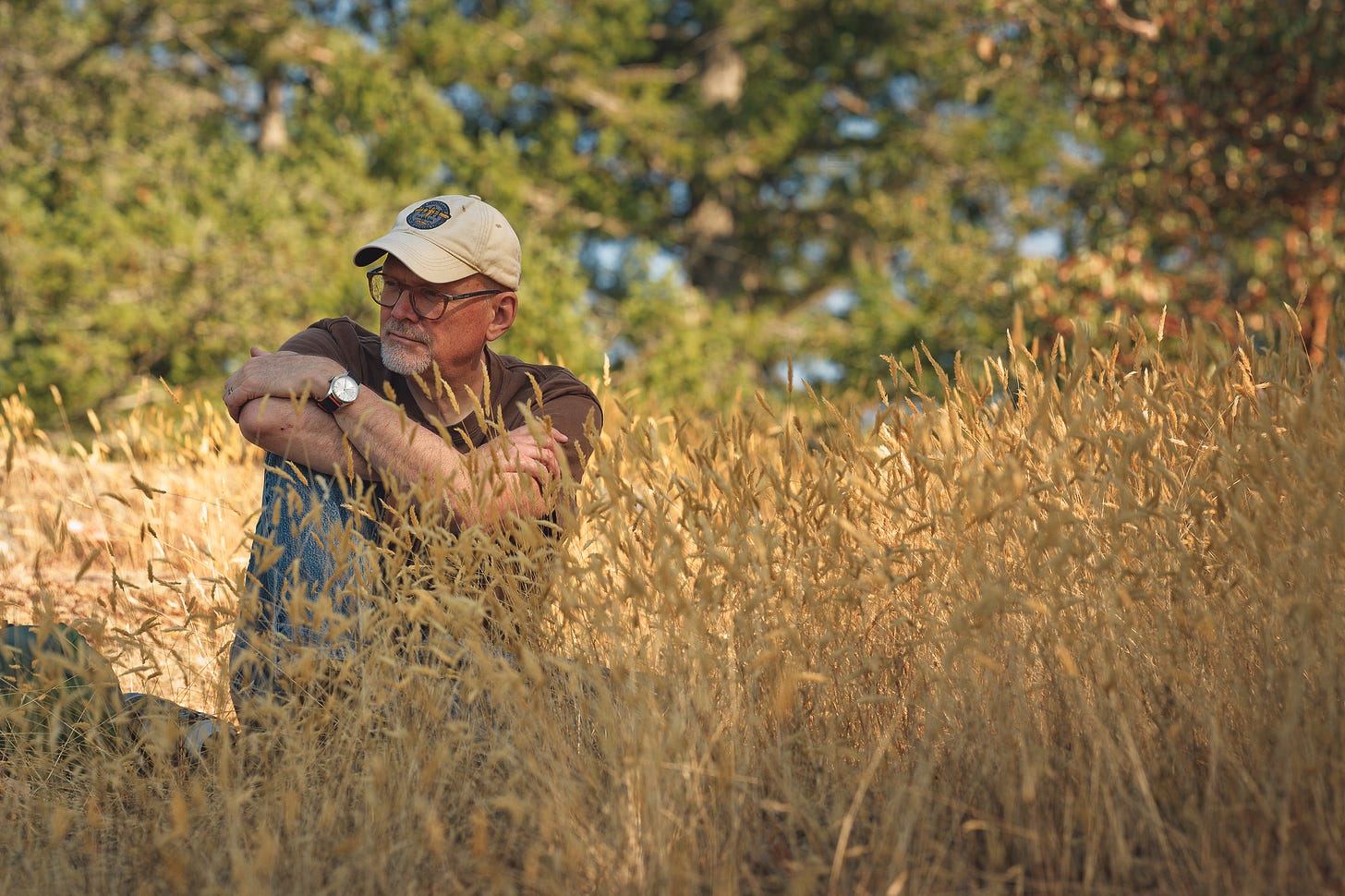10 Things I Learned
Reflections on 6 months of intensive therapy and where I'm going next
Background
1996, I was managing a Christian Bookstore. A friend invited me to joined the Board of a little non-profit. A working Board. Long meetings, crazy stuff happening. The “storming” phase of an organization.
5 years later I stepped down and took an admin position. Not a lot of pay, but it felt right. “Be the change you want to see in the world,” and all that.
Over time, more clients with more serious challenges. Complex diagnoses, greater needs. New ideas, new programs. Eventually more funded beds. Whole new buildings. No question, the heroes are the front-line workers. No question. Vicarious trauma though, and lots of stress. The terrible things that people live through. One day I realized every single client had experiences a major trauma. A life altering trauma.
Over time the leadership changed, board members left, new ones joined. Executive Director’s left, new ones stepped in. I pivoted and carried on. New priorities, different approaches.
Over time community support fluctuated as the homelessness crisis escalated. There were secondary things, behind the scene things. Years of fiscal restraint. Learning to do more with less. New people hired. New enthusiasm. Thank God for them. Amazing hearts. We learned more, improved services. Clients got better, lives were changed. It was what I had wanted to be part of.
But over time, I eroded. Crumbled at the edges like a river bank, one chunk at a time. The flow separated me. That unrelenting flow of challenges, problems, and people. Human drama taking it’s toll. We all want to feel important, we all want credit. The welcoming prayer became my constant practice.
2025, I began weekly therapy with a clinical counselor and an occupational therapist. Quality time with my depression. The black dog. Made some progress, had insights, then low energy, then integrating what I learned, then weariness, back and forth. Black dog-tired, but sparks of hope. Through it all, a sense of gratitude. I was surrounded by support. Family, friends, professionals. “You do the work,” I was told. A rare thing, apparently. The last step was tapering off the medication that had kept me going. Then, within a few weeks off the medication, almost miraculously, I felt a connection click in, an acceptance. I was myself again.
The 10 Things I Learned
Social Risk Hypothesis - The root cause of my depression is best explained by the Social Risk Hypothesis. Supporting this conclusion is new research that suggests highly sensitive people (HSP) are more vulnerable to social exclusion and social pain.
Defectiveness schemas start in childhood - When I am with people who have controlling or aggressive behavior, I tend to regress to a passive style of interaction. This goes back to my childhood experience with two female teachers who didn’t know how to teach a sensitive boy. They didn’t understand what I required to do well in school, and instead used shame-based strategies that kind of crushed me. This is because of differential susceptibility, the idea that sensitive children do better than other children in supportive environments, and worse in threatening ones.1 The negative environment contributed to my defectiveness schema. I’ve known about the schema since it was diagnosed in 2012, but thanks to my counselor I now reframe it as a feeling of shame when I believe I’m “not enough.”
Go slow with childhood wounds - The experience of “not enough” is a core wound for me. A lifetime of shame related to this wound takes time to fully uncover and heal. I needed to give myself that time without feeling rushed. Still struggle to resist pressure to be more extroverted, more productive, and less sensitive - all criticism I received because of my genetic predispositions. My gift to the world is deep processing, deep relationships, and sharing a meaningful life. I’ve decided to focus on refining those gifts.
CBT is seldom enough - Cognitive Behavior Therapy is great for managing thoughts, and I use CBT strategies daily. After practicing CBT techniques for over 13 years, I concluded that they are not the whole solution for me. CBT doesn’t adequately address unconscious drivers or the shadow elements that continue to influence us. This is where depth psychology comes in. In addition, I found that Meta Cognitive Therapy was better for reducing ruminations.
We are made of parts and shadow elements - This idea was popularized by Internal Family System’s Theory and various schools of Dynamic Psychology. My parts include a critical part (manager), a protector part (manager), and a child part (exile), among others. I have also identified a number of shadow elements in myself. These are behaviors, thoughts, feelings, and wounds that are repressed, suppressed, or otherwise hidden and ignored. My focus is now on loving and including all my parts, and letting my true self guide me.
There is a flip-side - The flip-side of believing I’m not enough is that I learned to enjoy the process of examining my thinking, beliefs, and choices in order to improve them. Getting better at things is good. Feels good. This lifelong habit of self assessment and improvement can be self-centered at times, but has resulted in more understanding of others, more compassion, more kindness, and a stronger capacity for accepting reality as it is.
I’m a lot like my mother - The interpretation of two recent dreams helped me better understand the behavior of “females” in my life including my mother, female colleagues, my wife, and my own anima. I have come to accept that I’m a lot like my mother, and many of my judgements of her are judgments of myself. I now see the criticism, judgements, and rejection I’ve received from other women in a larger context. For the most part such women have not wanted to hurt me, but were driven by wounds, systemic pressures, their own ambitions, beliefs about men, their history with other men, and fears and defense mechanisms. Also, of course, by my own shortcomings and failings as a man.
Avoiding conflict is ok sometimes - Working in conditions of high conflict or stress is generally not a good environment for someone with sensory processing sensitivity2. This doesn’t mean I’m weak or too passive, it just means I’m wired to take in lots of information and process it deeply, so I have to manage the information and stimulation I receive and remain cognizant of my differential susceptibility.
Assertiveness looks different for introverts -According to the Big 5 theory of personality, assertiveness is a key facet of extroversion, and so doesn’t come easily to most introverts. My assertiveness is more diplomatic, compassion-based, and gentle than it might be for extroverts. I’m learning to use humor to set or reinforce boundaries. I frame assertiveness as a way to love others by giving them information and helping them gain clarity about what a healthy relationship looks like. My intuition that assertiveness often blurs over into aggressiveness and is often insensitive of others, is accurate. It is what kept me suspicious of the strategy for so long. I’m learning to be more assertive with people who are manipulative or bullies, and sometimes that means walking away when confrontation doesn’t feel possible or doesn’t work. Walking away is ok.
I need to embrace my child-like curiosity and enthusiasm - My inner child became part of my shadow because I deemed his open, curious, and inquisitive nature to be the cause of teasing and embarrassment. Re-discovering and accentuating those qualities is an important part in being more authentic and genuine.
Jungian Coaching
I want to help people. This desire is rooted in both a genuine empathy and a desire to relieve suffering and contribute to people’s flourishing, and also in my desire to be appreciated and respected. consequentially I have had an ongoing interest in some form of therapeutic career.
For years I resisted the idea of working one-on-one with people because of my “not enough” belief. But when my wife, and then my counselor, suggested I would be good at it, I started to look for a modality that resonated deeply with me and that I could see myself actually practicing. With an awareness of the hard road that such a calling entails, I signed up for Jungian Coach training and will begin study in a few months.
What I like about the Jungian modality is it’s focus on psychodynamic principles, the role of the unconscious and the emotions, and early life experiences that shape self-image and beliefs. In this course the focus is on the ego/self axis. The goal of such coaching is to help people integrate their core self with their actions and beliefs.
The Meaning Crisis
John Vervaeke’s video and podcast series, Awakening from the Meaning Crisis struck a strong cord with me. Dr. Verveake writes in his preface to the book of the same name, “We no longer trust in our public institutions. We have completely lost faith in our political and judicial systems. Religious affiliation is declining consistently, and participation in community organizations is in decline.” This loss of faith in foundational social supports echoes my own feelings. See my post, The sinking Raft Path for more on this.
Having wrestled with my own doubts and grief these last few years, I’m now more interested than ever in finding ways to bring meaning and purpose back into my life and to help others do the same.
I will continue to post updates here on what I’m learning over the next year. I welcome recommendations for how I might best prepare myself to serve in this important role. In a world growing more and more distant from true connection, meaning, and contentment, I want to be an agent of reconnection, meaning making, and a sense of being enough.
As Elaine Aron says, “… failure to be understood makes it easy to grow up feeling there is something wrong with you.”
Sensory Processing Sensitivity is the defining characteristic of Highly Sensitive People. See https://healyournervoussystem.com/sensory-processing-sensitivity-the-science-of-highly-sensitive-people/




